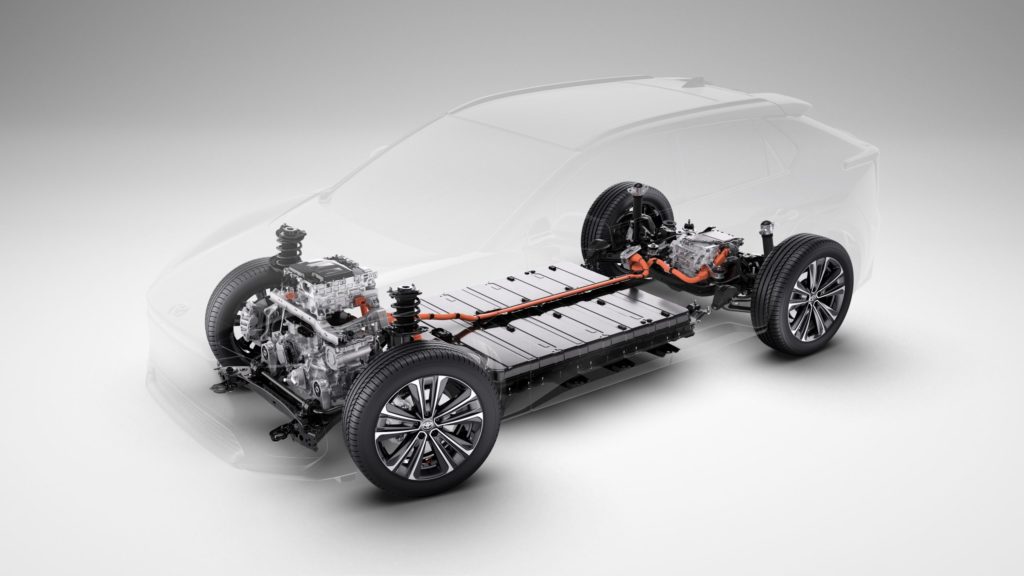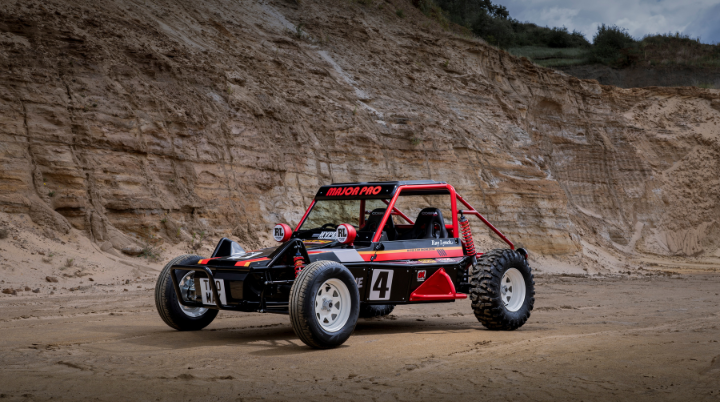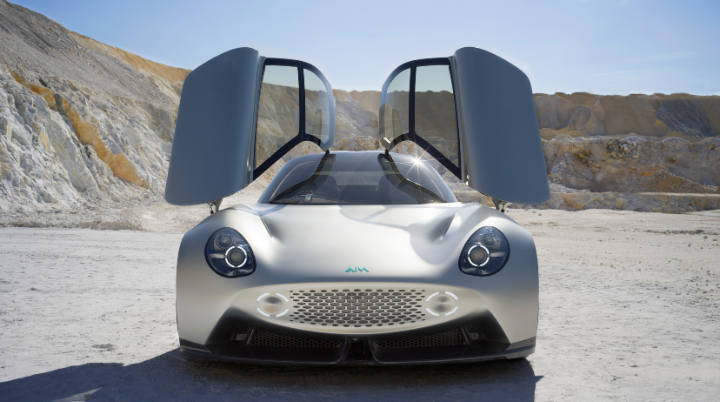Toyota has taken the wraps off its all-new bZ4X, the first model in a new series of bZ – beyond Zero – battery electric vehicles (BEVs).
Its concept was revealed earlier this year and the production-ready bZ4X is the first model to be developed by Toyota entirely as a BEV. It is also the first car to be built on the company’s new dedicated BEV platform. Based on e-TNGA philosophy, this has been co-developed by Subaru and Toyota, incorporating the battery unit as an integral part of the chassis, beneath the vehicle floor.

Toyota has drawn on almost 25 years’ experience in electrified vehicle battery technology to secure world-leading quality, durability and reliability for the lithium-ion unit which powers the bZ4X. Even after 10 years of driving, the battery is expected to still operate at 90% of its original performance.
With a fully charged battery, expected range is more than 280 miles (depending on version, exact data to be confirmed later). The bZ4X will also offer advanced technology features, including a solar panel roof to help charge the battery while driving.
The new e-TNGA platform has the flexibility to be used for potential future bZ models and is designed for production at scale. Critically, the slim battery unit is located fully beneath the vehicle floor and forms part of the chassis, helping achieve a low center of gravity, optimized front/rear weight balance and high body rigidity.
The front-wheel drive bZ4X is powered by a high-response 150kW electric motor. It produces 201bhp and 265Nm of torque, enabling 0-62mph acceleration in 8.4 seconds and a top speed of 100mph. The all-wheel drive model (further details below) has maximum power of 214.5bhp with 336Nm of torque; top speed is unchanged, while acceleration to 62mph is reduced to 7.7 seconds. An AWD model features separate 80kW motors driving the front and rear axles.
The system offers the option of “single pedal drive” with a boost in the braking energy regeneration that lets the driver accelerate and slow the vehicle using only the throttle pedal.
The high-density lithium-ion battery has a 71.4kWh capacity that is expected to deliver a driving range of more than 280 miles (applying to WLTP metrics). Figures depend on version and remain provisional at this stage, prior to homologation. In line with development targets for the battery, only a marginal reduction in battery performance is expected – around just 10 per cent – in 10 years of driving, or 150 000 miles, whichever comes first.
Thanks to an efficient and effective heating system, including a heat pump, reliability is also maintained in sub-zero temperatures, with only a modest reduction in range compared to competitor models. Similarly, the battery can be fast-charged without compromising safety or service life: an 80 per cent charge can be achieved in around 30 minutes with a 150kW fast-charging system (CCS2). At launch, the bZ4X is equipped with a 6.6kW on-board charger; from Q4 2022, a new 11kW three-phase charger will be introduced.
Key to the battery’s quality and durability is multiple monitoring of the voltage, current and temperature, from individual cell level. If any abnormal heat generation is detected, controls are automatically triggered. Countermeasures have been put in place to mitigate any material degradation, and there are safeguards in the manufacturing process to prevent foreign matter from entering the battery. In a Toyota first, the battery is water-cooled.
The introduction of the bZ4X strengthens Toyota’s multi-technology approach to meet different mobility requirements by offering customers a full line-up of electrified vehicles, including hybrid electric (HEVs), plug-in hybrid electric (PHEVs), battery electric (BEVs), and fuel cell electric (FCEVs). Toyota aims to reduce CO2 with products that are easy to use and have strong customer appeal; these technologies will together help deliver the goal of carbon neutrality.





